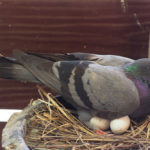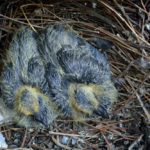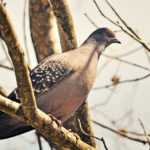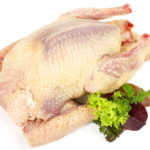Whether you’re a pigeon enthusiast looking to clue up on your knowledge, or you’re considering homing a pigeon as a pet, you may want to know about the reproduction patterns and also some of their mating habits which can be helpful if you do ever intend to care and look after a pigeon.
In this article, we’ll be guiding you through when pigeons tend to lay their eggs and the average number of eggs they usually lay.
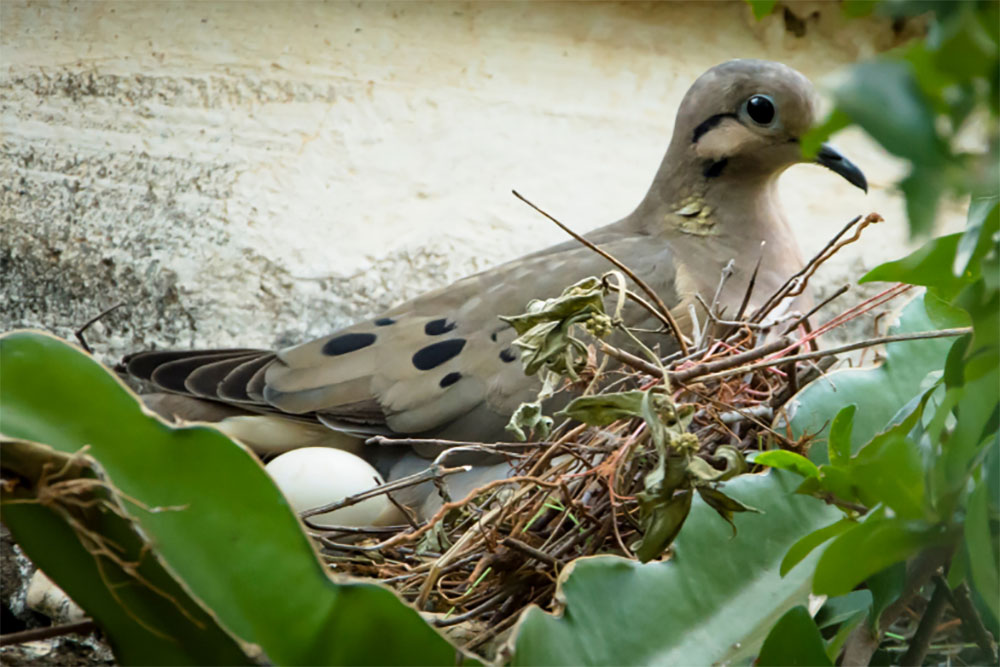
On average, pigeons will lay two eggs each time but it’s not uncommon for them to lay up to 3 eggs in certain cases.
So if you are planning on breeding pet pigeons, then it’ll be good to be prepared for 2-3 eggs to be laid and also prepare yourself to have to care for a possible 3 more pigeons once the eggs hatch.
When Do Pigeons Begin Breeding?
Pigeons do not reach sexual maturity until they’re seven months old, but most pigeon experts advise not to begin mating a pair of pigeons until they’re 12 months old, and once they do mate they often stay with their partner for life.
Pigeons can lay eggs 12 times a year (once a month), therefore you could be looking at getting 24-36 eggs per year if you’re lucky.
Normally, when pigeons want to mate with each other, the male pigeon will collect a stick and bring it to the female as a gift to begin building their new nest together.
Then if the female is interested, they will embark on the process of building the nest together to lay the eggs.
They tend to breed all year round but the peak breeding season is during the spring and summer months.
When Do Pigeons Lay Their Eggs?
When the nest is finally finished, the female pigeon will be happy to then lay her eggs in the nest.
Around 10-14 days after mating has been carried out, the female pigeon will lay her first egg in the nest which she will usually lay during the early evening.
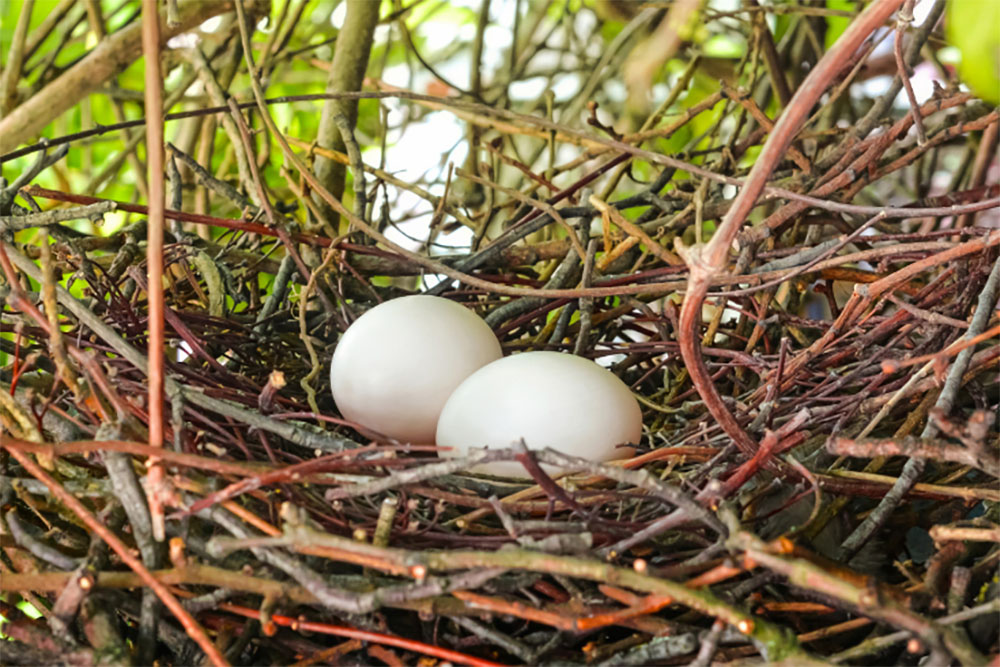
Then around 40 hours after she has laid the first egg, she will then lay the second egg. In some situations, a pigeon may lay a third egg 1-2 days after the second egg.
It’s not uncommon for pigeons to only lay 1 egg, but this is usually more frequent in young pigeons or elderly pigeons.
The female and male pigeon will take it in turns to sit on the eggs and incubate them until they’re ready to hatch, with the mother doing the nighttime shift and then the father taking over when the morning rolls around again.
Once the eggs hatch the parents will each take it in turns to go and find food to feed the newly hatched squabs.
However, the parents will not leave the chick alone until it is around 2 weeks old and after that, they will eventually leave the chick to go on multiple rounds of the area to find food to feed them.
The Appearance Of Pigeon Eggs
The typical pigeon egg is quite small and white, but they can often have slight blue hues to them and in some cases display small brown spots.
Sometimes where the eggs are incubated can impact and alter the coloring of the eggs, with most house incubated eggs being light-colored but eggs from pigeons kept in the wild are darker in appearance.
Many experts speculate that eggs incubated in the wild are darker as the colors are easier to camouflage in the nest away from predators’ eyes should the parents have to flee the nest from treatment or to find food.
Some also say that the darker color will also help to trap the heat inside the egg which will keep it warm even if neither of the parents is sitting on top incubating it.
There shouldn’t be a reason to be concerned if your pigeons’ eggs are slightly different from the norm, but if they look drastically different from what you’re accustomed to or you’ve seen online, then just get in touch with your veterinarian to see if there is a problem.
Hopefully, tame pet pigeons will carry out their regular parent duties and incubate the eggs, and care for them themselves so you’ll just need to wait for them to hatch.
However, sometimes parents may reject the eggs due to them being infertile, dead, or damaged so you’ll want to keep a watchful eye to see if the egg is being incubated by the parents, and if not take a look at the eggs yourself (try the candling technique) or call a vet.
If you are going to breed your pet pigeons, you’ll want to do some research on what a healthy pigeon egg should look like so you’ll be able to easily spot any problems should they occur.

